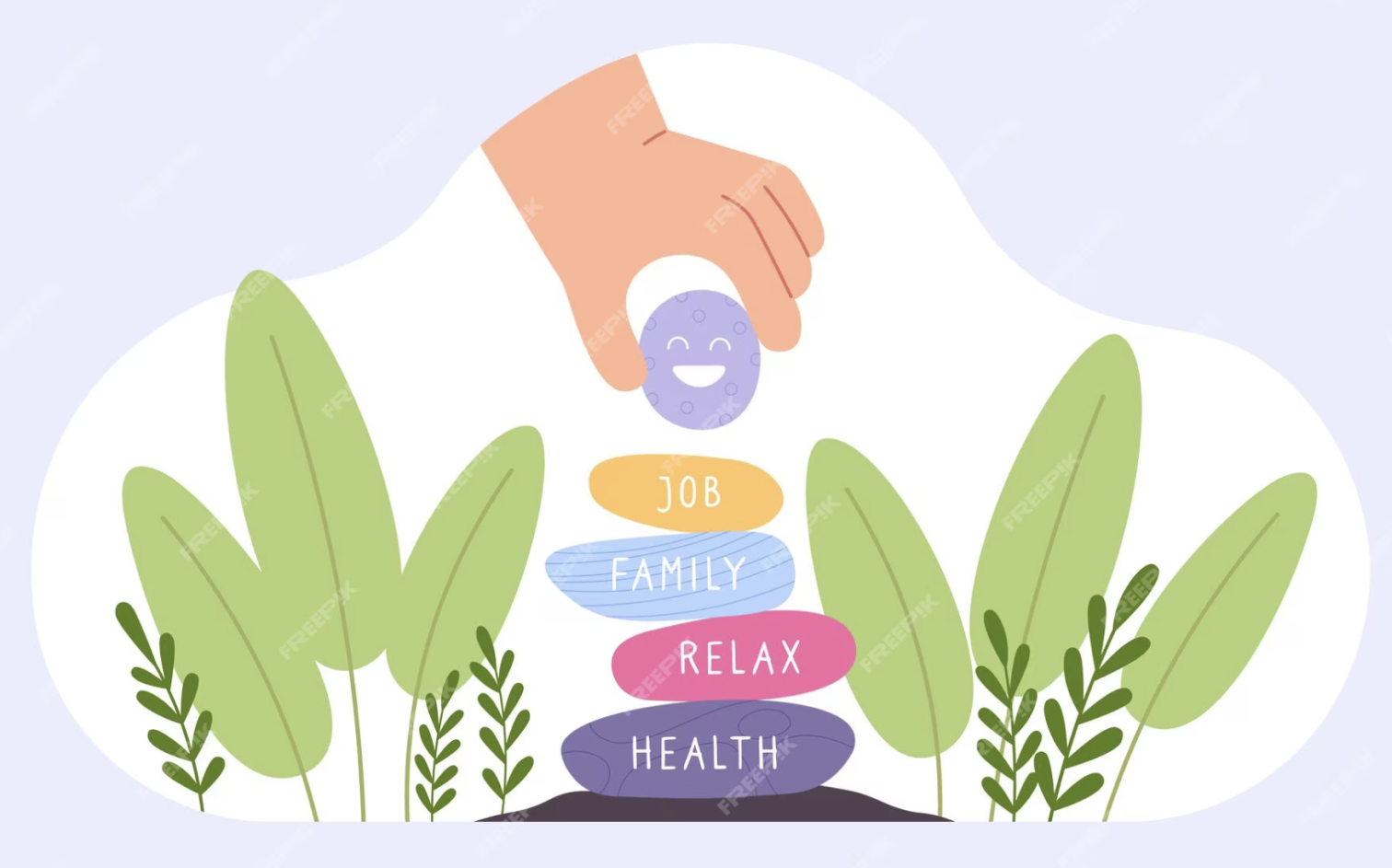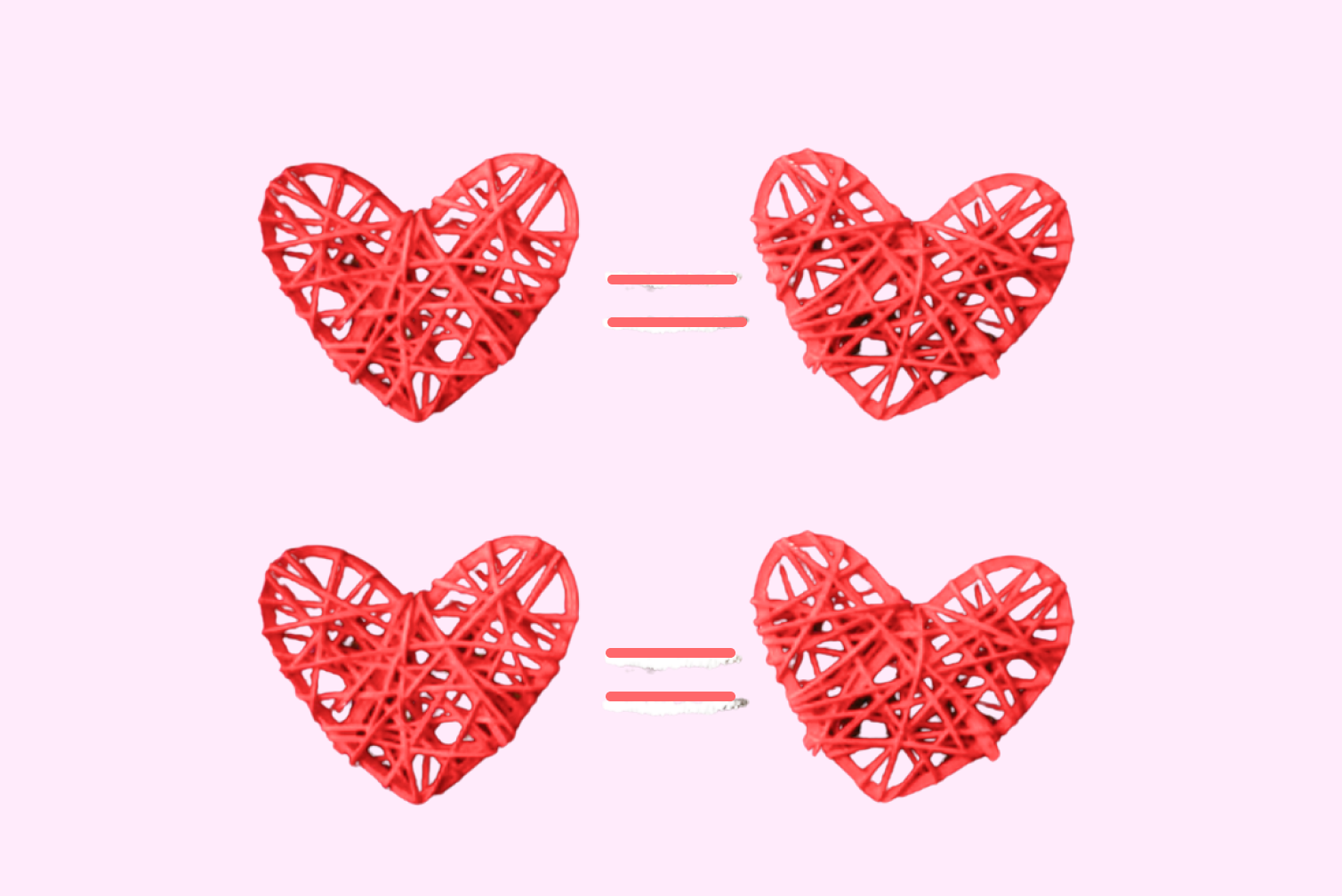
Stress management is not one-size-fits-all; that's why it's important to experiment and find out what works best for you. We assist our clients by employing techniques and strategies to deal with and reduce the physical and psychological effects of stress. Being a natural part of life, some amount of stress is considered healthy; however, coping mechanisms need implementation in case excessive or chronic stress leads to adverse effects on physical and mental health. Effective stress management helps improve one’s overall well-being and reduces the risk of stress-related health problems.
The ultimate goal is a balanced life with time for work, relationships, relaxation, fun, and the resilience to hold up under pressure and meet challenges head-on.

The ability to regulate and balance your own thoughts, emotions, behavior, and actions effectively is covered under self-management. It involves being responsible for your decisions, thoughts, communications, actions, and overall well-being. To lead a fulfilling life, self-management skills such as determination, focus, and continuous learning help you be successful in various areas of life.
Why do you even need self management?
Self management skills play a vital role in improving your professional and personal life by creating a positive change in you.
The ability to regulate and balance your own thoughts, emotions, behavior, and actions effectively is covered under self-management. It involves being responsible for your decisions, thoughts, communications, actions, and overall well-being. To lead a fulfilling life, self-management skills like determination, focus, and continuous learning help you be successful in various areas of life.
Bellow tips will help you understand it better :

Cords are automatic energetic connections that develop between two people, often triggered at some point when your energy diverts from its original purpose to reach out to another. They are also referred to as 'psychic cords' or 'etheric cords.' The concept of energetic cords is closely associated with the importance of maintaining healthy boundaries in relationships. Some cords can be so subtle that we may not even be aware of their existence. However, an accumulation of cords from many people and the gradual depletion of energy over time may create an energy deficit. The nature of cords can be classified as healthy or unhealthy based on the impact they have on your energy system.
A healthy and positive cord provides stability and peace in your life, ensuring that you take care of yourself and others with love, support, and connection. Conversely, an unhealthy or negative cord may transmit negative emotions or energy, leaving you emotionally unstable, drained, and overly dependent on your partner's or person's time and attention, often neglecting your own needs and comfort in the process. These cords or energy connections can be severed between two people to bring more stability and harmony into life, fostering a sense of peace, freedom, and completeness.
A healthy and positive cord will give you stability and peace in your life making sure that you are taking care of yourselfHow the cords connect between two people:
Let us explore types of cords that can affect your energy system:
These are physical structures made of energy. They can be visualized as tubes that connect people. If the cord is depleting someone, the energy flows away from them. If the cord is feeding someone, the energy flows toward them.
These are cords that can be cut to banish an ex, relieve anxiety, and relieve stress.
These are physical structures made of energy. Cords of attachment are invisible bonds that connect people together in the spiritual realm. They are energy structures that cause patterns from the past to continue in the present moment. Cords of attachment can be form with: Family, Friends, Co-workers, Acquaintances, Romantic relationships.
Cords of attachment are connected to one or more chakras of both people. The specific chakra they are rooted in depends on the thought and emotional frequency you share with that person.
It is important to note here that the concept of energetic cords is a belief that exists in some spiritual and energy healing traditions but is not yet universally accepted or supported by scientific evidence. The effectiveness and significance of cord cutting and related practices are matters of personal belief and interpretation. Individuals who are interested in exploring these concepts should do so with an open mind and consider consulting with experienced practitioners or mentors in the field.
Though it is advisable to take help of a trained practitioner to cut cords properly for sustainability, you may also experience practicing the same. To practice cutting cords with someone and release emotional attachments, you can:

Emotional management, also known as emotional regulation, refers to the ability to recognize, understand, and effectively manage one's own emotions in various situations. It's a crucial skill for maintaining emotional well-being, fostering healthy relationships, and making sound decisions. Emotional management is a type of therapy that helps people better understand, accept, regulate, and express emotions. Human beings naturally give more weight to negative emotions than positive ones, a phenomenon known as negativity bias. Negative emotions tend to carry a significant impact, whereas positive feelings are often subtler. Developing a habit of noticing these positive experiences may boost resilience and overall well-being. In emotional management, individuals learn constructive ways to respond to both positive and negative stimuli. We assist them in becoming aware that it's healthy to express their feelings, emphasizing the importance of how and when they express them.
Emotional management is an ongoing process. Effective emotional management takes time, patience, and practice. It's about developing self-awareness and a toolbox of strategies that work for you in different situations. By implementing these strategies, you can become more skilled at understanding and managing your emotions, leading to greater emotional well-being and healthier relationships. This can be achieved through reading, self-reflection, and learning from your experiences.

Grief is a natural and complex emotional response to loss, and it can affect individuals in various ways. Managing grief involves coping with the intense emotions, adjusting to life without the person or thing you've lost, and finding ways to move forward. Aarchechon help clients setting aside "Grief Time" to manage the day to day challenges using tips, techniques and practices that help elevate pain and other emotions that surface along with grief. It's important to accept that grief is a part of your life. It may resurface at times, particularly during significant anniversaries or life events.
Remember that grief is a unique and ongoing personal process. Everyone experiences and copes with grief differently. What's important is finding strategies and resources that work for you and seeking the support you need during this challenging time.

Coping with a breakup can be challenging, involving a range of emotions such as sadness, anger, and grief. It is often one of the most difficult and emotionally painful processes in our lives. The loss of a boyfriend, girlfriend, husband, wife, or partner can feel like being torn apart, causing significant pain. Some individuals may even express suicidal thoughts or thoughts of self-harm in the aftermath of a relationship ending, as they struggle to cope with the loss. These energetic cords or connections between two people can be severed to bring more stability and harmony to life, fostering a sense of peace, freedom, and completeness. With increased awareness, individuals can better navigate the breakup situation by employing self-empowering strategies.